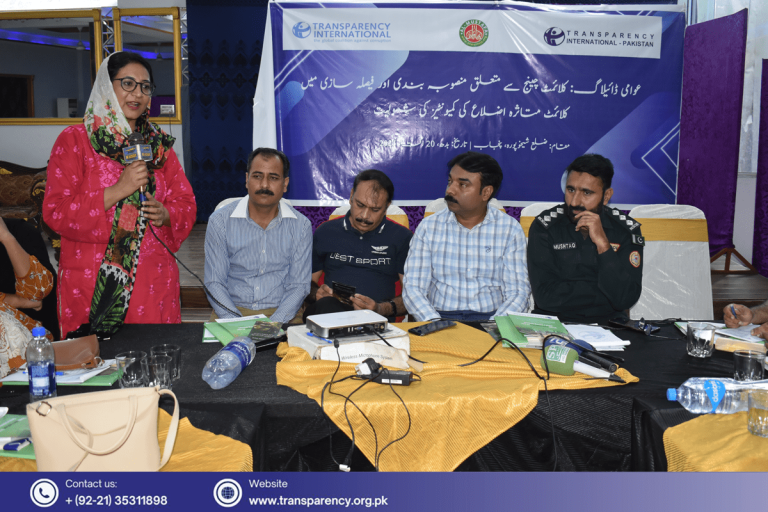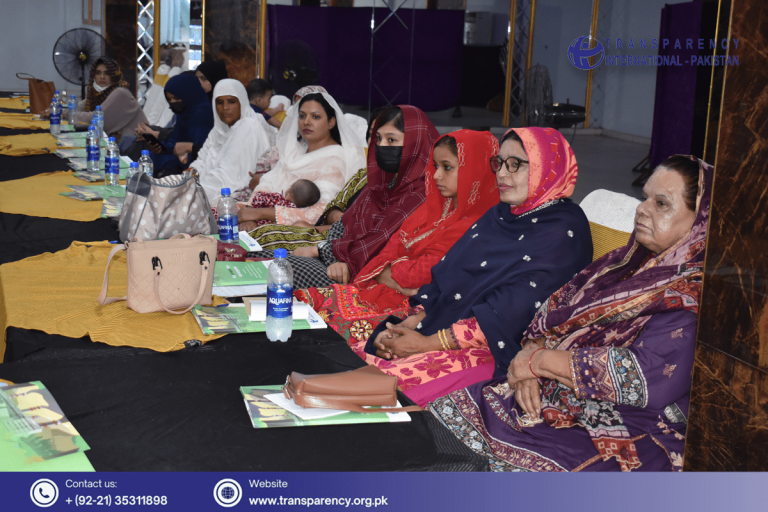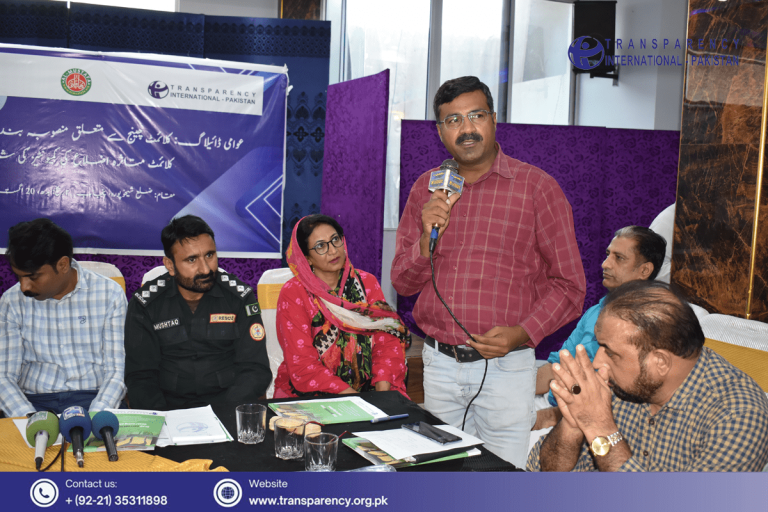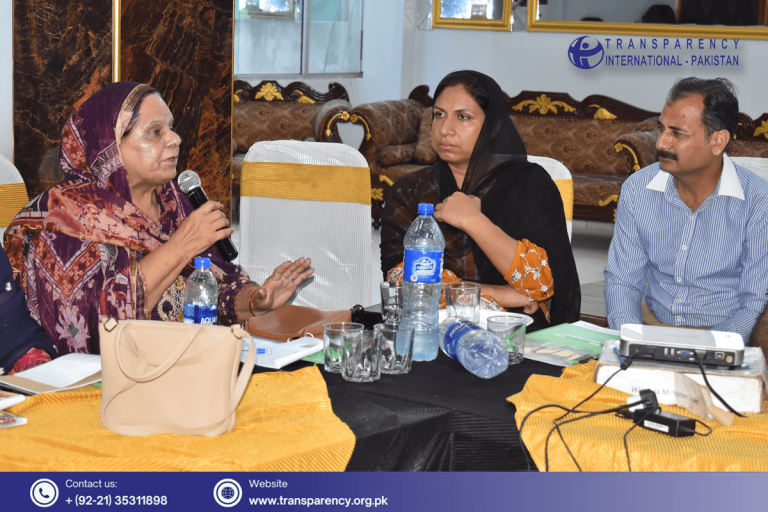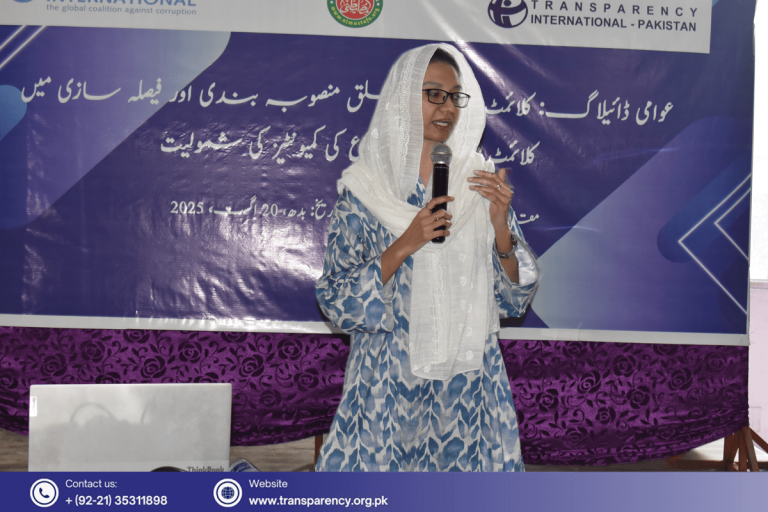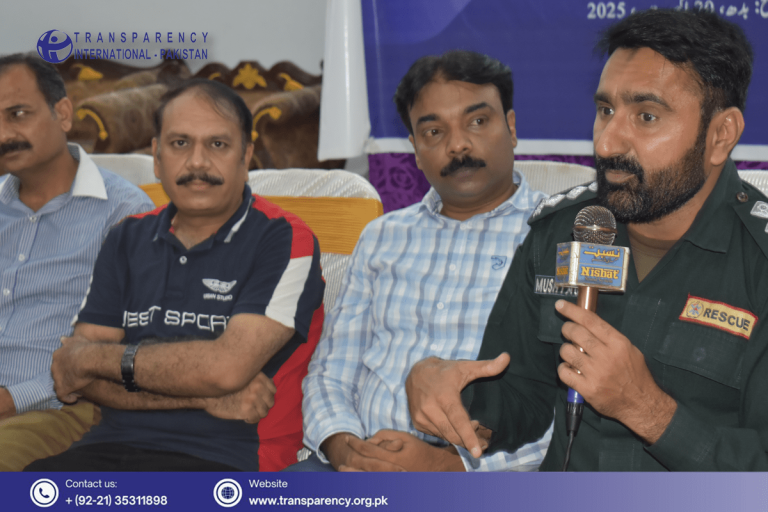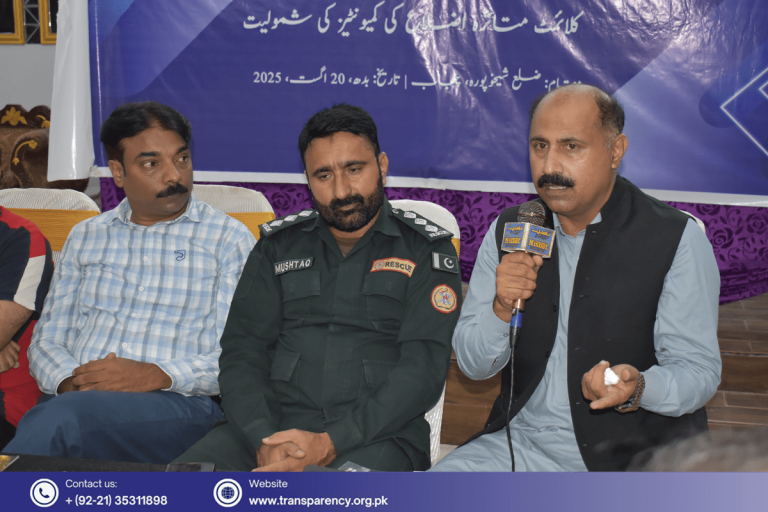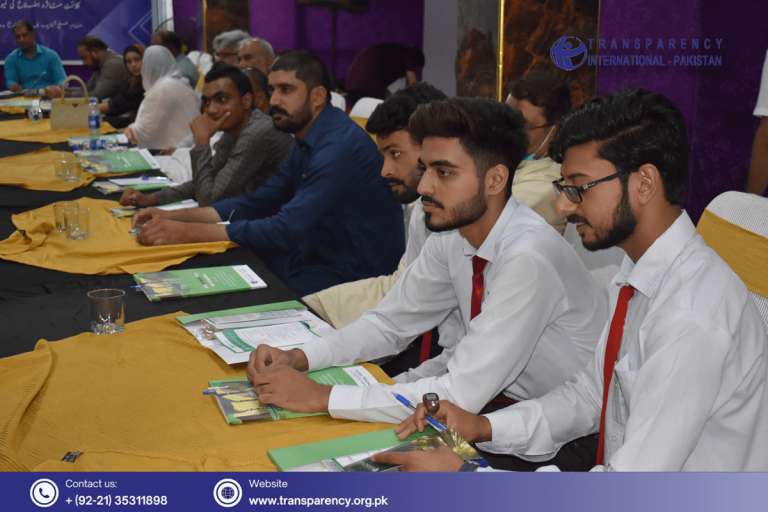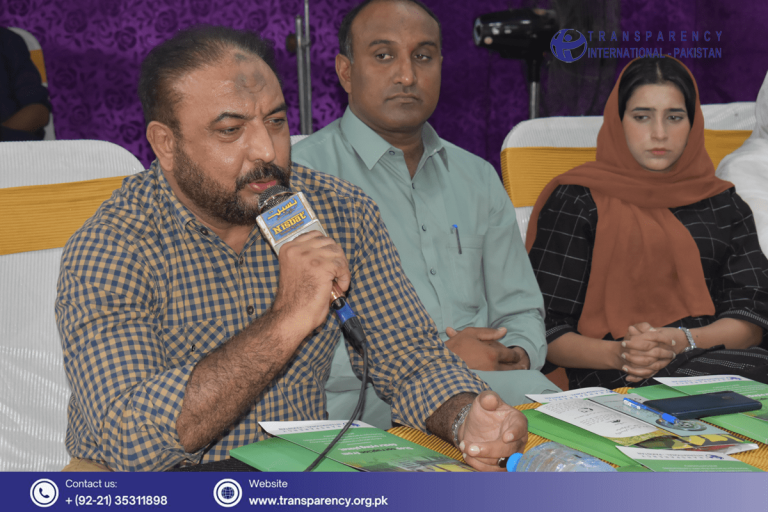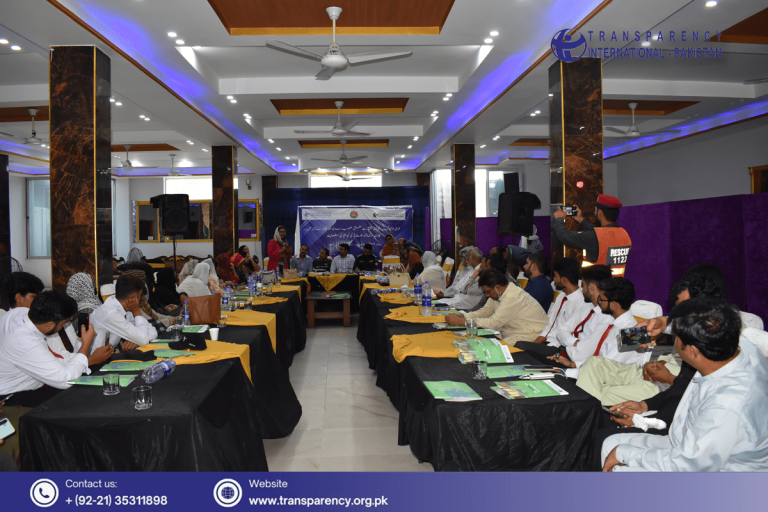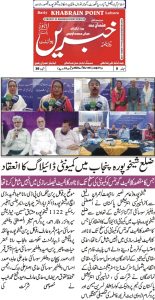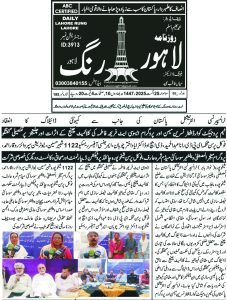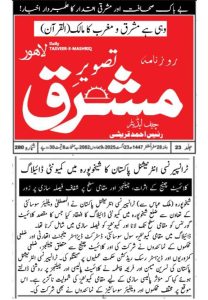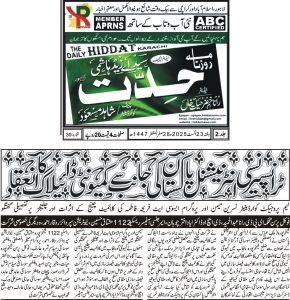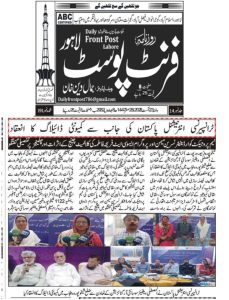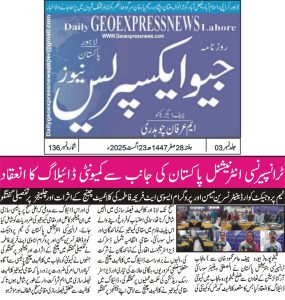Public Community Hearing on Community-Driven Climate Action in Sheikhupura
Public Community Hearing on Community-Driven Climate Action in Sheikhupura
Venue: District Sheikhupura, Punjab
Date: Wednesday, August 20, 2025
Transparency International Pakistan (TI P), in collaboration with Al-Mustafa Welfare Society, organized a public community hearing in Sheikhupura, Punjab. The event aimed to integrate local perspectives into climate policy design and implementation to improve accountability and community ownership of climate action.
The hearing brought together 52 community members, including 18 women, from Kala Shah Kaku Town, UC Khuda ki Basti, and Sheikhupura city. Government representatives, including officials from the Environment Protection and Climate Change Department, Rescue 1122, and the District Health Office also attended the event.
Mr. Majid Sulheri of Al-Mustafa Welfare Society opened the session by outlining Sheikhupura’s climate vulnerabilities. He noted that the district faces heightened risks due to extreme weather, population density, agricultural dependency, and weak drainage systems. Ms. Nasreen Memon, Project Coordinator, TI P explained that the hearing provided a platform for residents to share their experiences and help shape policies that reflect local realities.
Ms. Fariha Fatima, Program Associate, TI P, summarized key aspects of the Punjab Climate Change Policy 2024 and Action Plan. She highlighted the policy’s focus on disaster preparedness, early warning systems, climate-resilient infrastructure, and transparency in implementation.
Mr. Rana Abdul Hameed, Focal Person for the Environment Protection Department, described ongoing efforts to reduce pollution, including enforcing zig-zag kiln technology and controlling vehicle emissions. He also emphasized industry compliance with environmental standards.
Mr. Syed Mushtaq Shah of Rescue 1122 discussed disaster management and emergency response protocols. He outlined improvements in early warning systems, evacuation drills, and coordination with local authorities.
Dr. Muhammad Ayyad, District Health Officer, detailed health measures during disasters, including the availability of medicines for malaria and dengue, spraying campaigns, and strengthened preventive care.
Community members raised concerns about drainage infrastructure, delayed flood relief, limited access to early warnings, industrial pollution, and insufficient health services during emergencies. They also stressed the need to include women in disaster planning.
Ms. Nazli Jameel, Councilor, UC Khuda Ki Basti, emphasized the importance of women-centered disaster preparedness and advised on practical steps such as preparing emergency hygiene supplies. Government representatives acknowledged these concerns and committed to incorporating community feedback into future planning.
Ms. Nasreen Memon also introduced the Punjab Transparency and Right to Information Act 2013, explaining how it enables citizens to request information from public bodies. She encouraged participants to use to obtain climate-related information and hold officials accountable.
Additionally, she presented TI P’s Advocacy and Legal Advice Center (ALAC), which offers free legal support and helps communities engage with government agencies. Participants completed complaint forms to document specific local issues for follow-up.
The hearing concluded with a shared commitment to maintaining dialogue between citizens and authorities. Participants affirmed that such engagement is vital for building trust, ensuring accountability, and developing climate policies that respond effectively to local needs.

